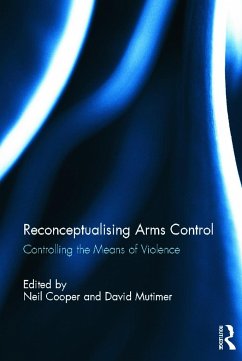The theory and practice of arms control seemed to have its heyday during the height of the Cold War, with its focus on the East-West conflict and nuclear arms. In the past twenty years, both arms technologies and various practices aimed at their control have continued to develop, but scholarly thinking has not kept up. This volume seeks to redress this scholarly neglect of the range of issues associated with the control of the means of violence, by asking the question: what does arms control mean in the 21st Century? In asking this question, the volume examines issues surrounding sovereignty, geopolitics, nuclear disarmament, securitization of space, technological developments, human rights, the clearance of landmines, the regulation of small arms and the control of the black market for arms and nuclear secrets. The book discusses terrorism with reference to the case of the suicide attacks in Beirut in 1983 and how the Obama administration is orientating its posture on nuclear arms. This book was published as a special issue of Contemporary Security Policy.
It explores the nature of contemporary measures to control of the means of (armed) violence ranging across various technologies and conceptual approaches to ask what arms control means in the 21st Century. This book was published as a special issue of Contemporary Security Policy .
Hinweis: Dieser Artikel kann nur an eine deutsche Lieferadresse ausgeliefert werden.
It explores the nature of contemporary measures to control of the means of (armed) violence ranging across various technologies and conceptual approaches to ask what arms control means in the 21st Century. This book was published as a special issue of Contemporary Security Policy .
Hinweis: Dieser Artikel kann nur an eine deutsche Lieferadresse ausgeliefert werden.








